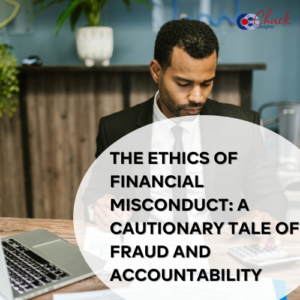 Trust is the bedrock of all transactions in the hushed halls of finance. As an ethics consultant and speaker, I’m continually flabbergasted by the stories of deception that erode this sacred trust. Remember the 2008 global financial crisis? At its core lay a malignant web of misconduct, one strand of which has just reached its denouement.
Trust is the bedrock of all transactions in the hushed halls of finance. As an ethics consultant and speaker, I’m continually flabbergasted by the stories of deception that erode this sacred trust. Remember the 2008 global financial crisis? At its core lay a malignant web of misconduct, one strand of which has just reached its denouement.
The eminent Swiss lender UBS recently agreed to part with a staggering $1.435 billion to settle U.S. allegations of misleading investors. The accusations were grave, stating that UBS drew investors into purchasing troubled mortgage securities, weaving a narrative of trustworthiness around perilous products. Such acts by financial institutions played a central role in spiraling the world into the 2008 crisis.
The U.S. Department of Justice, in its relentless pursuit of justice, has managed to amass over $36 billion in civil fines. This sum comes from 19 banks, mortgage originators, and rating agencies found guilty of malpractices related to the packaging, sale, and rating of residential mortgage-backed securities (RMBS) in the build-up to the infamous crisis.
Yet, what’s genuinely eye-opening is that many of these securities were given a triple-A rating. This rating, often seen as the gold standard of safety and trust, was accorded even though subprime and other precarious mortgages anchored these securities. As borrowers began to default and the underlying flaws in these products became glaringly evident, investors faced monumental losses.
To provide a perspective on the scale of these settlements, consider this: The largest single settlement touched a mind-boggling $16.65 billion. This was with Bank of America in 2014, after it acquired mortgage specialist Countrywide Financial.
Turning back to UBS, the settlement came after a 2018 lawsuit that alleged the bank of misleading investors. The bank claimed that it made deceptive statements on over $41 billion in loans, backing 40 RMBS issued between 2006 and 2007. Though initially balking at the proposed near $2 billion settlement, UBS finally settled on the $1.435 billion figure. It’s worth noting that Credit Suisse, acquired by UBS, had to fork out $5.28 billion in 2017 under similar circumstances.
In response, UBS announced that they had previously earmarked reserves for the payout. And with this settlement, the lawsuit against them should be dismissed. But what’s paramount here is the figures and the message it sends. As U.S. Attorney Breon Peace aptly put it, the payout serves as “a warning to other players in the financial markets who seek to profit through fraud unlawfully. We will hold them accountable, no matter how long it takes.”
Ethics is not just a philosophical concept but the foundation of trust upon which businesses and economies are built. For every UBS or Bank of America held accountable, we inch closer to a world where trust is not a commodity to be traded but a principle to be upheld.
As we navigate the intricacies of the financial realm, let this serve as a reminder. Ethics and transparency should never be optional. They should be the air financial institutions breathe, the currency they trade in. Only with rigorous ethical standards can we hope to prevent another devastating financial meltdown.
For information on the ethics programs offered by Chuck Gallagher, visit https://chuckgallagher.com.


